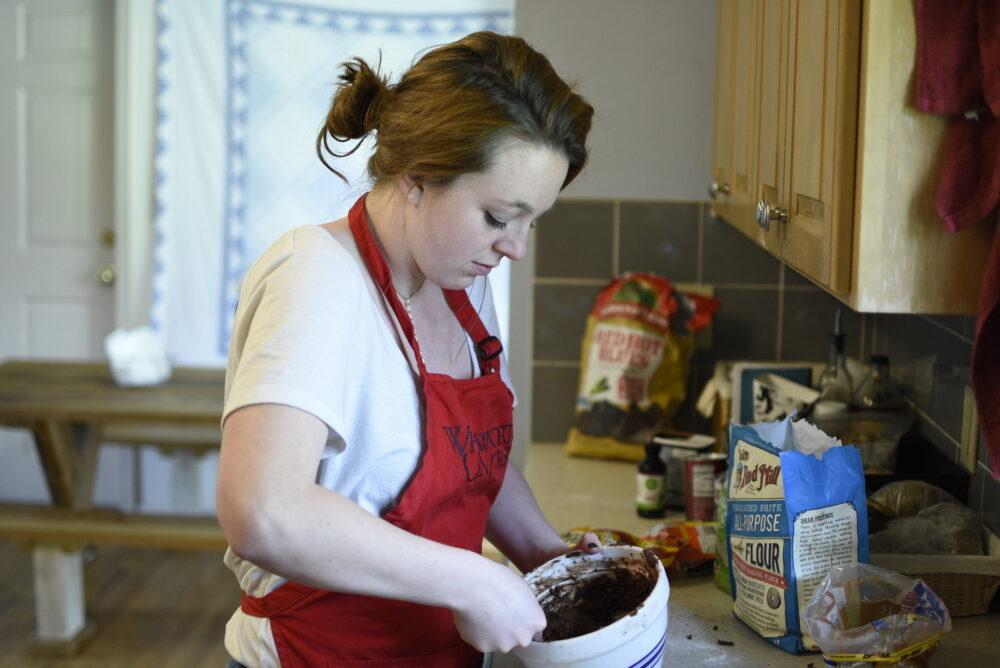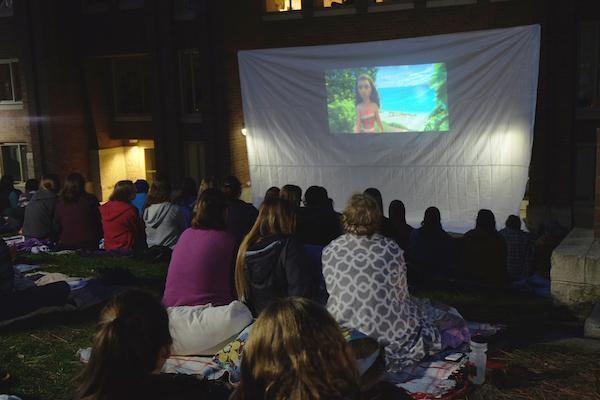A response to Whitworthian article Inner City Lives Matter
Every few years at Whitworth, a predictable cycle tends to occur. A student, full of excellent intentions and armed with a newly acquired sense of confidence upon entering college, finds his or her opportunity to demonstrate this confidence in the student newspaper. Most of the time, he/she focuses on their gaze on issues directly relating to the campus, to the discussion occurring in their classrooms and dorms that makes Whitworth such an amazing place to spend four years. Occasionally, however, fueled by the political discourse that dominates our social media outlets, this student decides to apply his/her new found college knowledge to the current discussion of race relations in our country, drawing evidence for their beliefs from their extensive experience of marginalization as a white, middle class, college educated student in the upper northwest. The current result of this phenomenon is an article titled Detroit’s disadvantage, published in last weeks Whitworthian.
Before I go any further, please understand this. I am a white, middle-class, proudly Whitworth educated male. Understand that everything I am about to say would be written off as an angry __________ (fill in demographic category here) if I identified as anything else. Understand that patient and wise people of color have taught everything I will describe to me over these next few paragraphs.
And please understand that I live in Detroit.
Without hesitation, the author takes my home and tells my Alma Mater that Detroit is bankrupt, crime ridden, with failing schools and rampant drugs and violence. Which seems restrained after the author goes on to describe the people of Detroit, my friends and family, as broken families; poor, black, and hopeless. He/she finishes particularly eloquently, prescribing that “life in the inner city sucks.”
People from Detroit don’t talk about their city like that.
People who only see Detroit on the nightly news tend to.
While I could spend the rest of the article discussing why talking about a city that you have never been to and a context you do not understand is dangerous, I would rather spend my time dealing directly with some of the considerable misinformation disseminated in this article to the Whitworth campus.
The author spends the majority of his article laying out the claim that the rejection of the Republican Party by black/urban America is the primary cause for the decline of our urban centers. The argument goes, that if urban America had only embraced
the ideals of low regulations, disenfranchised the labor unions and elected Republican mayors, Detroit would have never gone bankrupt (among other things).
It is a compelling argument, if one entirely forgets the history, politics, and context of urban America the 60s.
Following WWII, Detroit was the 4th largest city in America with over 2 Million residents. Informed by the massive overcrowding of the city, and the lack of housing, black residents where legally confined to three dense neighborhoods, the largest known as Paradise Valley. Due to the aforementioned overcrowding, middle class black families were eager to move out, which the advent of the Civil Rights Movement led by Dr. King gave them an opportunity to do. For the first time, Black families could buy a house anywhere in the city.
What followed was one of the most interesting and fundamental shifts in American political history.
White people got scared. Frightened by the possibility of black people with the freedom to move into their neighborhood, and by violent clashes that occurred following a series of police shootings (sound familiar?), white people ran. In Detroit, they ran from their neighborhoods into the suburbs. This phenomenon, known as White Flight, has decimated our city, creating a gaping hole in the our tax base, as we now have to pay for the services needed for a city of 2 million people with a revenue stream of 600,000 remaining residents.
Unfortunately, the newly suburbanized white voters were not done.
Continuing to be haunted by the images of violence, crime, and poverty linked to black Americans in our collective national psyche, white voters switched their voting allegiance towards politicians who promised to be “tough on crime”, well understood politician talk for being tough on people of color.
Unsurprisingly, the author is predictably critical of Democratic policies that have created a “welfare state” or a “handout culture”, implying that an entire generation of black people and poor whites made a deliberate decision to break down their own families in order to receive welfare handouts.
In reality, Michelle Alexander’s seminal work The New Jim Crow details that the breakdown of families in urban America has little to do with black people choosing a welfare check over a job and a married family. It has everything to do with the deliberate targeting and mass incarceration of men of color by the war on drugs. The consequences of this war, initiated by Nixon and Reagan and continued by Clinton, has singlehandedly devastated communities already decimated by White Flight.
The effects of these anti-urban, tough on crime policies continue to be felt today. Simply put, it is difficult to have a responsible job, buy a house, vote, raise a family, or serve on a jury, when you are labeled a felon for possession of a green plant called marijuana.
(As a side note, white Americans abuse drugs at the same or higher rate than black Americans. We just tend to avoid being pulled over by the police)
I want to conclude by speaking directly to the author.
First, I want to apologize for the tone in my response. I have dedicated my life to the urban context and admit that I too quick in passing judgment on white Americans. Second, I want to say that to a certain extent, I understand your point of view. If all that you knew of urban America was what you saw on the news, complete with the linked images of blackness, crime, and poverty, one would draw precisely the conclusions that you articulated. Finally, if you are at all interested in actually working to change Detroit, instead of raining down judgment upon black Americans from your position of stratospheric privilege, I welcome you.
I welcome you to keep your mouth shut, come, and learn. Live in the neighborhood, go to church, walk alongside people that look nothing like you. Learn what it means to be proximate to the marginalized, to walk in solidarity with those that, just like you, are made in the image of God.
I ask the Whitworth Community to do the same. Our current political climate is frighteningly similar to the fear and anger that decimated my city 50 years ago. Our news outlets and social media feeds are filled with angry, desperate white Christians trying to take back a country that was never theirs to begin with, a trend that is ironic when the most repeated command of God in the Bible is, Do Not be Afraid.
I ask and pray and beg of you, especially those of you who identify as white, do not be afraid. Instead, learn to humbly walk alongside your black and brown brothers and sisters, people made in the image of the same God as you.







